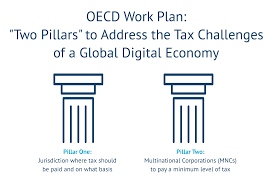
India Business Setup and Market Entry — Overview
India-UK Free Trade Agreement: Strategic Alliance and Mutual Gains
As two of the world's largest democracies and vibrant economies, India and the United Kingdom are on the brink of finalizing a comprehensive Free Trade Agreement (FTA) that promises to reshape their bilateral trade and investment landscape. With negotiations launched in January 2022, this trade deal is poised to become one of the most significant for both nations, creating new opportunities across goods, services, technology, mobility, and investment.
Overview of the India-UK FTA
The India-UK FTA aims to:
- Reduce or eliminate tariffs on a wide range of goods
- Enhance trade in services including financial, legal, and IT
- Promote investments through regulatory easing
- Address non-tariff barriers and streamline customs procedures
- Include provisions on intellectual property, digital trade, and sustainability
With trade in goods and services between the two nations reaching Pounds 38.1 billion in 2023, the FTA is expected to unlock further potential by deepening economic integration and cooperation.
Benefits to India
1. Increased Market Access for Indian Goods
- Textiles & Apparel: Reduced tariffs will make Indian garments more competitive in the UK market.
- Automotive & Engineering Goods: Better access for electric vehicles (EV) components and machinery.
- Agriculture & Processed Foods: Greater export potential for tea, coffee, rice, seafood, and spices.
2. Boost to Services Sector
- IT & Software Services: Easier movement of Indian IT professionals; potential easing of data localization.
- Education & Healthcare: Greater cooperation in healthcare and skill development sectors.
- Legal Services: Potential mutual recognition of qualifications and easing of practice barriers.
3. Improved Mobility
- The FTA is expected to include a mobility chapter to enhance short-term work visas, business travel, and student access.
- Easier visa conditions for Indian professionals and skilled workers will benefit sectors like fintech, legal, and consulting.
4. FDI Inflows
- UK is the 6th largest investor in India. The agreement could attract further FDI into Indian manufacturing, green energy, and infrastructure sectors.
5. Sustainability and Innovation
- Bilateral cooperation on green energy, EVs, hydrogen, and climate finance is expected to expand.
- Joint research and development in clean technologies, supported by UK financing.
Benefits to the United Kingdom
1. Access to a Fast-Growing Market
- India is projected to be the third-largest economy by 2030. UK businesses gain preferential access to a huge consumer base.
- British exports including scotch whisky, automobiles, and pharmaceuticals will benefit from tariff reductions.
2. Services Sector Expansion
- India’s liberalization of professional services, insurance, and fintech allows greater UK service exports.
- Legal, architecture, and accounting firms can operate with more ease in India.
3. Investment Opportunities
- UK companies can invest in India’s high-growth sectors such as digital infrastructure, renewable energy, healthtech, and logistics.
- Increased investor protections and dispute resolution mechanisms under the FTA.
4. Strategic Diversification
- Post-Brexit, the UK seeks to pivot towards Indo-Pacific. India is a key partner in its Global Britain strategy.
- Reduces dependency on EU trade and builds resilience in global supply chains.
5. Enhanced Mobility and Talent Exchange
- India is a major source of highly skilled talent in IT, finance, medicine, and academia.
- The FTA will ease mobility of students, researchers, and professionals to the UK.
Strategic and Geopolitical Significance
- Counterbalancing China: India and UK collaboration in Indo-Pacific bolsters rules-based trade order.
- Commonwealth Synergies: Shared legal, administrative, and linguistic frameworks facilitate smoother execution of agreements.
- Resilient Supply Chains: Both nations benefit by reducing overreliance on specific regions and increasing bilateral sourcing.
Potential Challenges
- Sensitive Sectors: Negotiations on tariffs for automobiles, dairy (from UK), and agricultural products (from India) require compromises.
- Labor & Environmental Standards: Alignment on sustainability and ESG goals is still evolving.
- Intellectual Property & Digital Trade: Differing positions on data privacy, cross-border data flow, and IP enforcement.
Conclusion
The India-UK Free Trade Agreement is not just an economic deal—it is a strategic partnership that reflects the shared ambitions of two global democracies. For India, it promises jobs, capital, and global integration. For the UK, it offers a gateway to the dynamic Indo-Pacific and the world’s largest youth market.
As negotiations approach the final stages, businesses in both countries should begin preparing to leverage the transformative potential of this landmark agreement.
Stay Updated: A2 Consultants offers tailored advisory on trade compliance, market entry, customs duties, and FTA utilization for businesses in India and abroad. Reach out to us to understand how your business can benefit from the India-UK FTA.
You can join our facebook group to see discussion on this subject
https://www.facebook.com/groups/624142300710122
A2consultants Indian Business Companion is also available on ChatGPT, making it more accessible for Professionals, Businesses, and Foreign Entities seeking insights into the intricate tax challenges you can acess from this link
https://chatgpt.com/g/g-6865f276fc1c8191b467aa48f145a369-a2consultants-india-business-companion.
Scan Here to Know More with ChatGPT





